Are you looking for mouth cancer treatment without surgery?
You may be hoping that non-surgical treatment will allow you to maintain your day-to-day life and work.
Also, you may be overwhelmed by the treatment options and amount of information available on the net. You need to have a clearer picture of which non-surgical treatment will be right for you and when will you need one. We will help you to find it out.
But before we proceed to learn about non-surgical options for mouth cancer you need to understand that whether you will opt for surgical, non-surgical treatment, or a combination of both will depend on many factors.
Let’s find out more about them and also about the non-surgical treatment options:
What is Mouth Cancer?
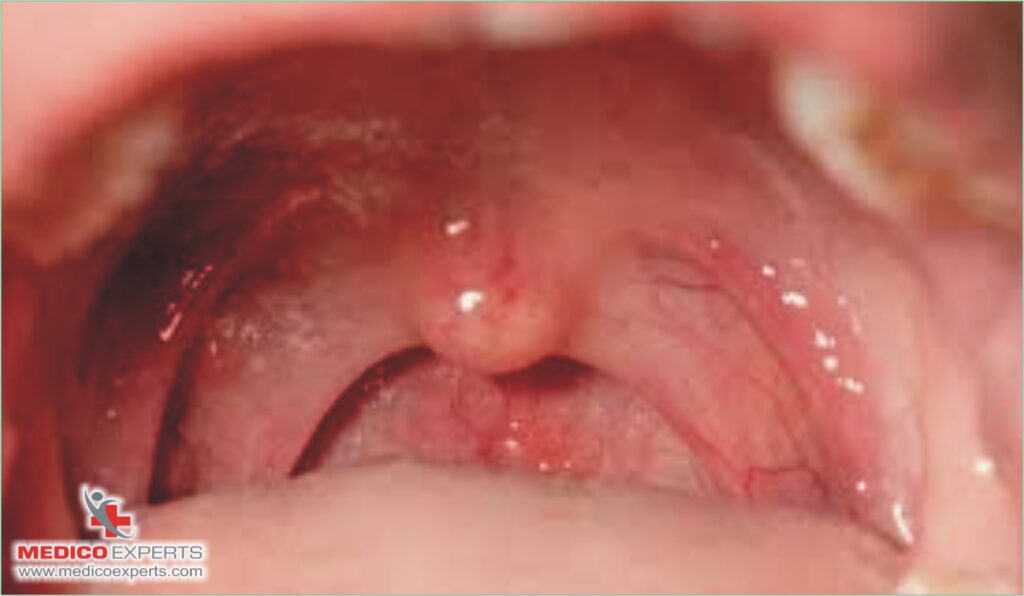
Mouth cancer forms in your oral cavity and it can affect all part of your mouth that you see when you open it, including lips, tongue, inner lining of cheeks, roof or floor of mouth.
When the cancer is inside the mouth, it is called oral cancer or oral cavity cancer. Mouth cancer comes under the category called head and neck cancer.
Mouth cancer stages are described using the acronym TNM. T indicates the location and size of the tumor. N indicates if the tumor has grown to the lymph nodes and M means the cancer has spread (metastasized) to other organs.
What are the Symptoms of Mouth Cancer?
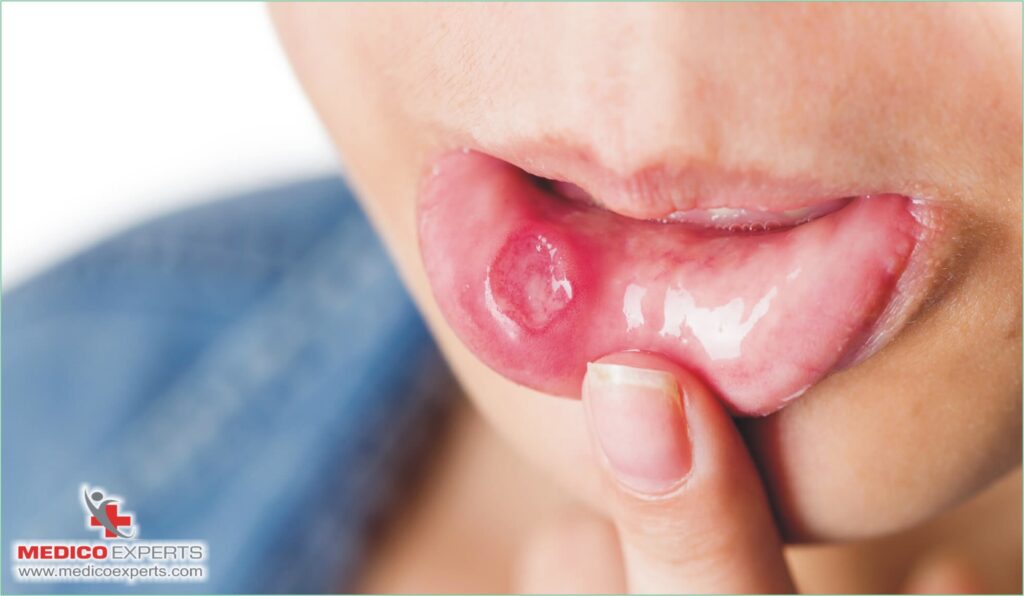
Now, let’s learn about the symptoms of mouth cancer. If a person has mouth cancer, these are some of the symptoms they may experience.
- A lump on the neck
- Bleeding in mouth
- Numbness in mouth
- Unexplained weight loss
- Speech problem
- White or red patches on gum, tongue or mouth
- Swelling or soar on your lip that doesn’t heal
When to opt for Non-Surgical Treatment for Mouth Cancer?
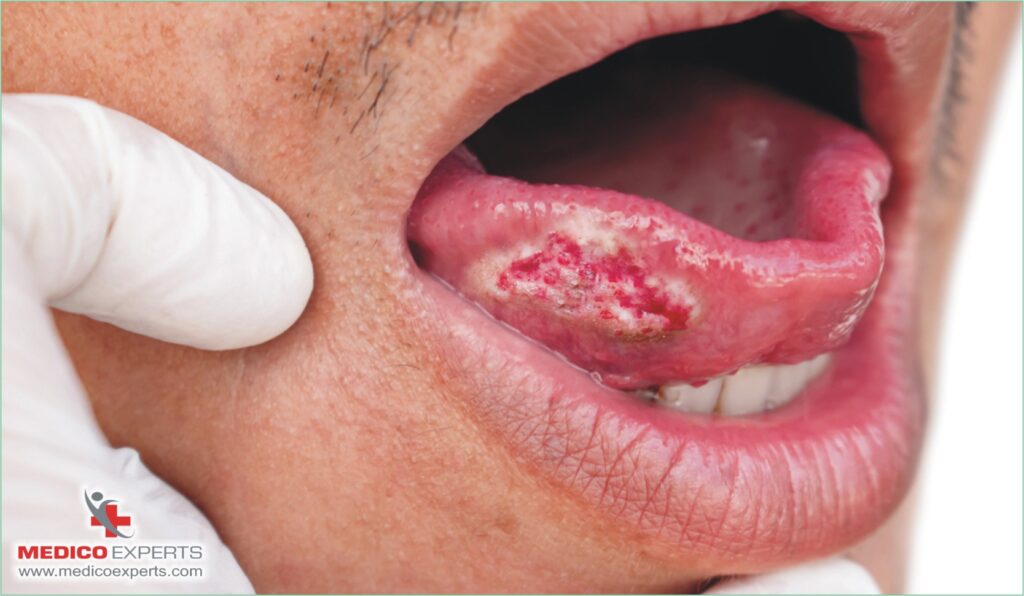
The kind of treatment you will have for mouth cancer depends completely on
- The size of the cancer
- Whether it has spread to other parts of the body
- The location of the cancer
- If there are genetic changes in the cancer
- Your age and overall health
Depending on your situation your doctor may recommend a combination of surgical and non-surgical treatments like chemotherapy, radiotherapy, and targeted therapy.
In most cases, mouth cancer treatment involves surgery. But if your mouth cancer is diagnosed early, you may only need non-surgical treatments like radiotherapy to get rid of the cancer. Let’s now learn about the non-surgical treatments for mouth cancer in detail:
Mouth Cancer Treatment Without Surgery?
Here are some non-surgical treatment options that can help you heal from mouth cancer:
1. Radiotherapy
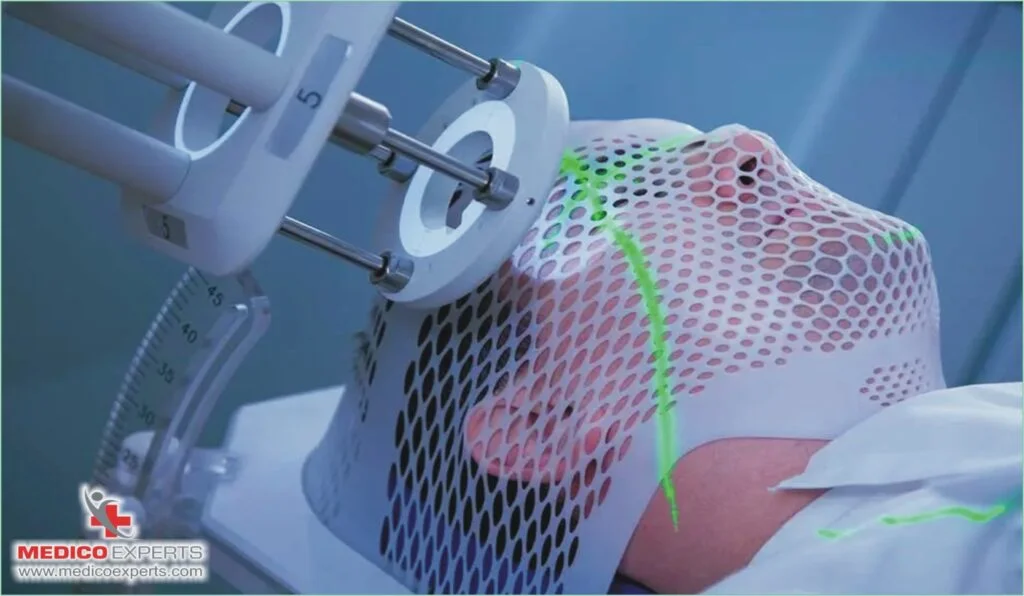
Radiotherapy uses radiation doses to kill cancer cells. It is mostly used after surgery for mouth cancer to avoid recurrences. The initial treatment for throat cancer is a combination of radiation and chemotherapy.
It may take 6 months for the radiation therapy. Usually, you get this therapy 5 days a week depending on the cancer’s size and its spread.
The cyberknife is a cutting-edge radiosurgery tool that precisely targets small areas without impacting the surrounding healthy tissues.
Learn more about cyberknife treatment
2. Internal Radiotherapy
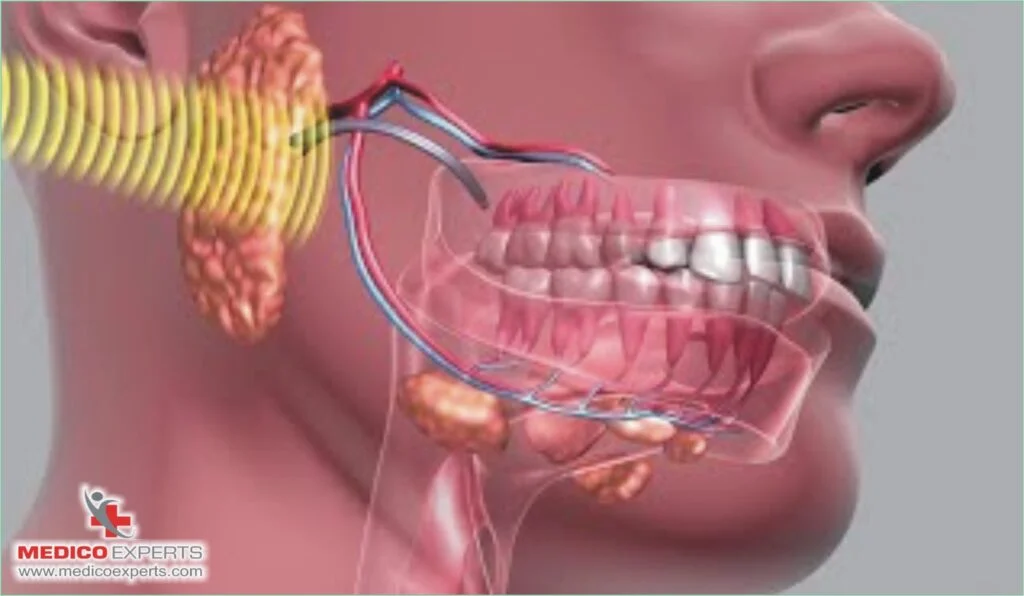
Mouth cancers that are in the early stages can be treated with internal radiotherapy. It is also known as brachytherapy.
In this procedure, radioactive implants are placed right into the tumor after a general anasthesia.
The entire procedure is focused on the cancer cells and they will receive a much higher dose of radiation than the rest of your mouth while the implants are in place for 1 to 8 days.
Your mouth will swell due to the radioactive implants and you will feel some pain five to ten days after the implants are removed.
3. Chemotherapy
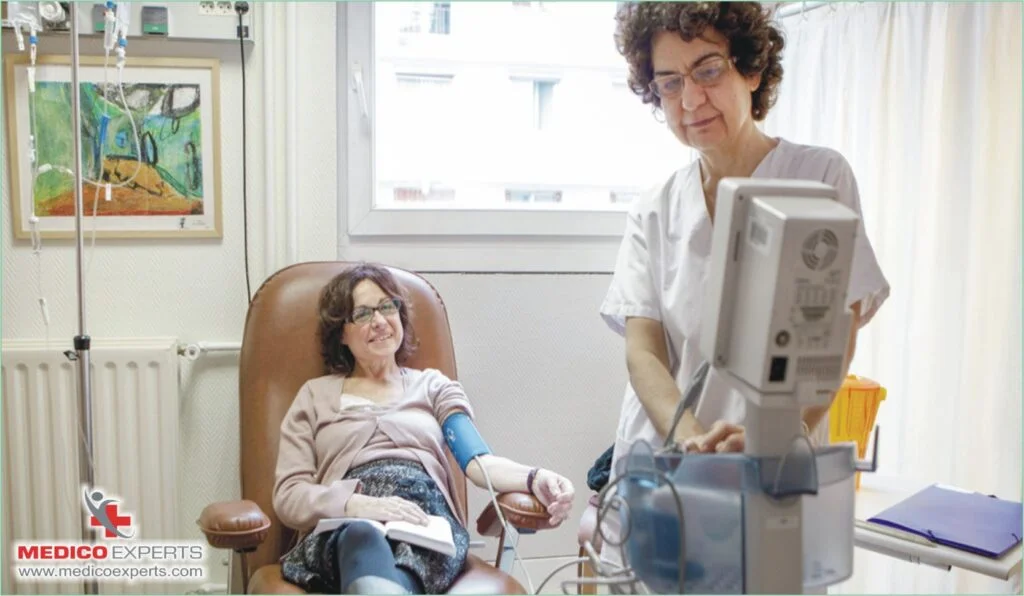
Chemotherapy uses powerful medicines to kill cancer cells that damage their DNA and interrupt their ability to reproduce.
If the cancer is advanced or there is a high possibility that it will return, chemotherapy may be combined with radiotherapy to reduce the chances of cancer relapse.
4. Immunotherapy
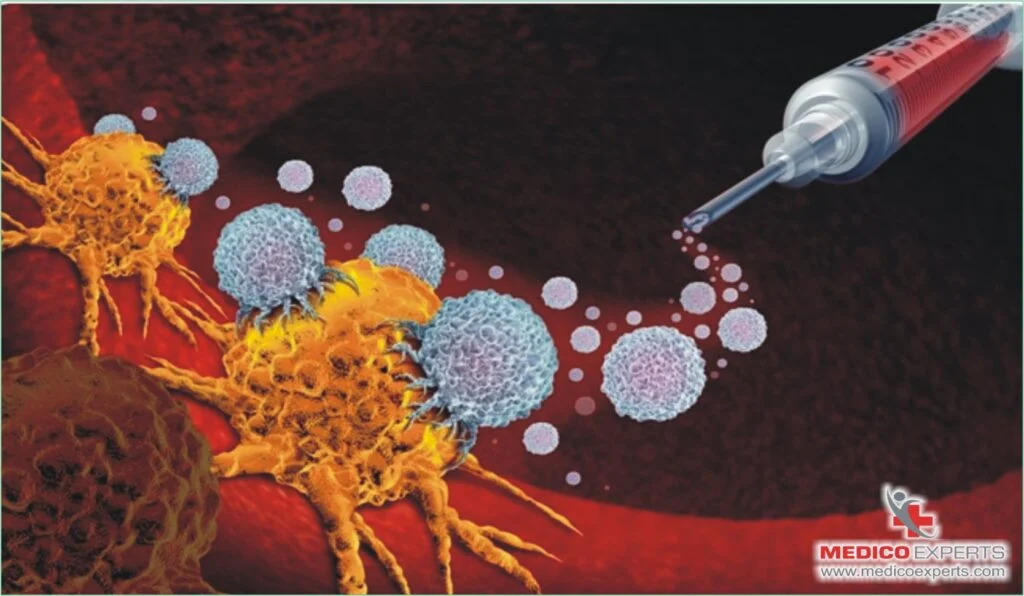
In immunotherapy, checkpoint inhibitors, which are a type of medication, are used to treat mouth cancer that cannot be operated on or is in its advanced stage.
Immunotherapy helps your immune system to find cancer cells and destroy them. It works by hampering the signals that prevent white blood cells from attacking cancer cells.
5. Targeted Therapy
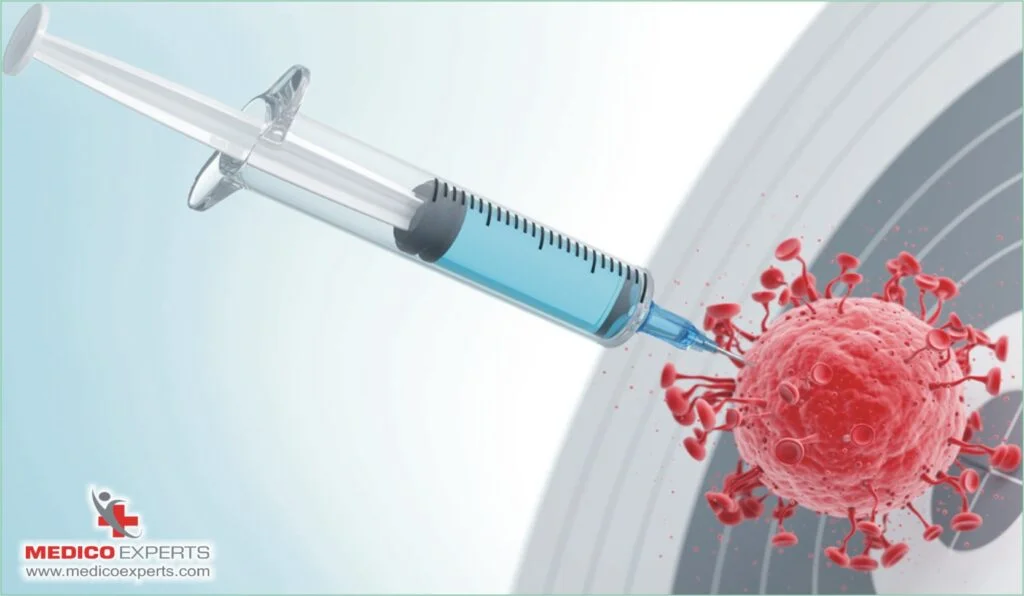
Targeted cancer drugs focus on specific features in cancer cells that boost their growth and survival. These medicines are mostly used for mouth and oropharyngeal cancer and they are used with the combination of radiotherapy.
Immunotherapy has fewer side effects compared to conventional chemotherapy.
Please visit to read more on targeted therapy for cancer treatment.
6. Photodynamic Therapy (PDT) for Mouth Cancer
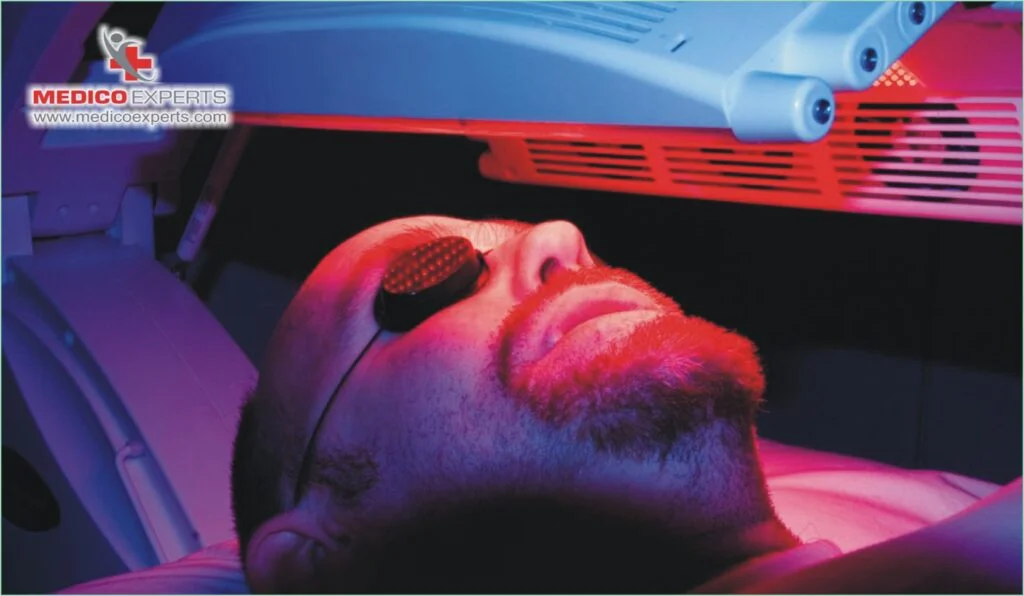
Your doctor may recommend photodynamic therapy (PDT) if you have mouth lesions (damage through injury or disease) that are at risk of developing cancer or if the cancer is discovered very early and is only present on the surface of your mouth.
In most cases, PDT can also be used to temporarily control cancer when the doctors find out that additional conventional treatment will not help in treating the cancer.
PDT uses a medication known as a photosensitizing agent and a specific type of light to treat mouth cancer.
Laser light is targeted on the cancer after taking the medication to eliminate the outer layer of the cancer and some nearby mouth tissues.
Takeaway

Some advanced non-surgical treatments for mouth cancer help you treat the disease effectively.
These treatments are tailored keeping in mind the cancer stage and your overall health and well-being. They can be used alone or with a combination of surgery and other therapies and treatments.
It is always better to consult an oncologist regarding non-surgical treatment options. Apart from that, you can get help from a tumor board to get more clarity. The benefit of approaching a tumor board is that it assesses different protocols before prescribing a suitable treatment plan to you.
The MedicoExperts Tumor Board approach has assisted thousands of patients across the globe and helped them treat mouth cancer. If you are struggling to access a reliable tumor board, you can reach out to us.
To schedule an appointment with the top oncologist in India, contact us today.
Frequently Asked Questions (FAQs):
Q1. How long can someone live with untreated mouth cancer?
A: Only 31.1% of people can have a 5-year survival rate with untreated mouth cancer. With stage 4 untreated mouth cancer, the survival rate goes down to 12.6 %.
Q2. What is the last stage of mouth cancer?
A: Stage 4 is the last stage of mouth cancer. At this stage, the cancer has spread to nearby tissues and organs like the oral cavity and jaw. It can be of any size.
Q3. Is mouth cancer curable at stage 3?
A: The mouth cancer will be limited to the mouth or one lymph node and in most cases easier to treat and cure in stages 0 to 3. Cancer has spread to nearby tissues and other organs if it is in stage 4 and it needs an aggressive treatment plan.
Q4. Where are oral cancers most commonly found?
A: Oral cancers are found in the mouth or the back of the throat. It usually begins in the flat, thin cells that line up your lips and inside of the mouth.
Q5. Can mouth cancer be cured without surgery?
If your cancer is diagnosed at an early stage, radiotherapy can cure it. But in advanced stages, non-surgical treatment may not work effectively and you will need surgery to remove the cancer.
Q6. How to cure mouth cancer permanently?
Surgery is the only way to remove the mouth cancer. The doctors may also need to remove some of the lymph glands during the process. In some cases, the area around the cancer also needs to be removed to stop the cancer from coming back.
Q7. Can tongue cancer be treated without surgery?
Tongue cancer can be treated with surgery or non-surgical options like radiotherapy, and chemotherapy. Doctors use one of these treatment options or combinations of them. The treatment approach will completely depend on the size of the cancer and how far it has spread.
References
- https://www.mayoclinic.org/diseases-conditions/mouth-cancer/symptoms-causes/syc-20350997
- https://pubmed.ncbi.nlm.nih.gov/8804893/
- https://www.cancer.org/cancer/managing-cancer/treatment-types/targeted-therapy.html#:~:text=Targeted%20therapy%20is%20a%20type,%2C%20surgery%2C%20or%20radiation%20therapy.
- https://www.cancer.gov/about-cancer/treatment/types/chemotherapy
- https://www.cancer.org/cancer/types/oral-cavity-and-oropharyngeal-cancer/treating/radiation-therapy.html
- https://www.nhs.uk/conditions/mouth-cancer/treatment/
- https://www.mayoclinic.org/diseases-conditions/mouth-cancer/symptoms-causes/syc-20350997
Relevant Articles For You
Oral cancer is one of the most common cancer types that is becoming a growing problem in many parts of the world. With new cases exceeding 640,000 annually. However, with the advancement of technology, experience, and…..Read More
Recommendations To Understand Different Treatments
Do you know, that you can increase the lifespan of cancer patients by targeted therapy while significantly reducing the side…..Read More
Are you anxious because you or your dear one is diagnosed with cancer? More so, when you are not sure about the success of the…..Read More
Does surgery for removing the brain tumor itself bring shivers in you? Lots of stress and anxiety with fear of the unknown start rushing in…..Read More
Medically Reviewed by MedicoExperts Editorial & Clinical Review Board on 13 September 2024



